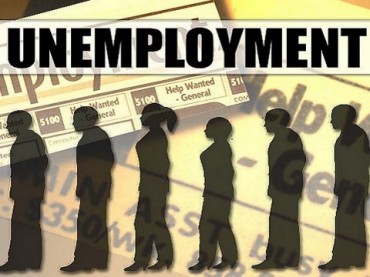
Casey Mulligan, a professor of economics at the University of Chicago and author of “Side Effects: The Economic Consequences of the Health Reform,” recently gave a speech in which he essentially explains in easily understood terms how the Affordable Care Act is a tax on full-time work, and a huge downer on our economy.
It’s a must-read for anyone who wants to understand how Obamacare is dragging down our American workforce. Portions of his speech are reprinted below with permission from Imprimis, a publication of Hillsdale College:
So what are the tax distortions that emanate from the ACA? Here let me simply focus on two aspects of the law: the employer mandate or employer penalty—the requirement that employers of a certain size either provide health insurance for full-time employees or pay a penalty for not doing so; and the exchanges—sometimes they’re called marketplaces—where people can purchase health insurance separate from their employer. The mandate or penalty is intended, of course, to encourage employers to provide health insurance. And the exchanges are where the major government assistance is provided, since those who purchase insurance in an exchange typically receive a tax credit. As I’ll explain, taken together, the penalty on employers and the subsidies in the exchanges add up to a tax on full-time employment—a tax that you pay if you work full time but not if you work part time or don’t work at all. And the problem with that, of course, is that by taxing full-time work—which is the same as subsidizing part-time work and unemployment—you get less of the former and more of the latter two.
How does this full-time employment tax work with regard to the employer mandate? As I mentioned, the penalty applies only in the case of full-time employees and only to employers that don’t offer health coverage, and it applies only in those months during which those full-time employees are on the payroll. If an employee cuts back to part-time work, the employer no longer has to pay the penalty. The dollar amount of the penalty doesn’t depend on whether the employee is rich, poor, or middle class—if he works full time, the employer must either provide insurance or pay the penalty. And the penalty is indexed to health insurance costs, so every year those costs increase more than the economy and more than wages, the penalty will increase more than the economy and more than wages.
The current penalty is usually described as $2,000 per year per full-time employee. But it’s really more than that, because the penalty, unlike wages, is not deductible from business taxes. So in terms of a salary equivalent, the penalty is closer to $3,000 a head. Needless to say, this penalty reduces competition in the labor market: It discourages employers from competing for full-time employees—which, if you’re an employee, is a bad deal. Also there are a lot of employers who are not going to pay the penalty because they don’t meet the size threshold of 50 or more employees, and employees are going to suffer because these small employers won’t want to become large employers and therefore subject to the penalty.
Furthermore, this mandate or penalty—and by this time it should be clear that we can think of it as a tax on having a full-time employee—disproportionately harms low-skill workers. Think about it this way: How many hours does a worker have to work each week to produce the $3,000-per-year of value to justify keeping his job or being hired? For a minimum-wage worker, that comes to eight hours a week, all year round—one day of work a week for the government due to the ACA alone. Higher-skilled employees can obviously produce $3,000 worth of value in less time, so the penalty will have less of an impact on them.
What of the tax distortions that come from the subsidized health insurance exchanges or marketplaces? To begin to think about this, imagine paying full price for your health care. How does full price work? Well, you pay the full price. The health care provider doesn’t look at your tax return and adjust the bill accordingly. So we would never call paying full price for health care an income tax of any kind. Or imagine there is a discount on the full price—for instance, 30 percent off for everybody, regardless of income. In that case it’s still not an income tax. No matter how much you earn, you pay the same price. But what if the discount (or subsidy) is tied to your employment situation? Not to your income, but to your employment situation. That’s how the exchanges work. If you have a full-time job with an employer that offers coverage—which is the case for most employees in our economy—you don’t get the subsidy offered through the exchanges. If you want to get the subsidy, you need to become a part-time worker or spend time off the job. In other words, this discount, too, is a tax on full-time employment. Of course, no politician ever calls it a tax. But when you are in a group of people that doesn’t receive a subsidy that people in another group receive, that’s a tax. …
In describing the size of this tax, again I find it useful to think in terms of how many hours per week somebody has to work to create enough value to replace the government subsidy he is losing because of his full-time status. There are a number of full-time workers who may have to work ten, 20, or even 30 hours a week to create the value they would get for free if they worked part time or didn’t work under the ACA. In the old days, working part time meant you earned less, and your family had less to spend than if you worked full time. Under this new system, on the other hand, if you have a family of four and make $26 an hour, dropping to part time can actually improve your financial condition by qualifying you for well over $1,000 per month in subsidies through the health care exchanges—an amount that exceeds what you would make by working the extra eleven hours per week. This is an economically perverse situation. We have decades of research showing that when you tax something, you get less of it. So if you tax labor, you get less labor. …
I have estimated that employment will be three percent less over the long term because of the ACA, and that national income—or GDP, if you like to think of it that way—will be two percent less. If you look at the productivity costs alone—forgetting the fact that there will be a number of people not working anymore—they come to $6,000 per person who gets health insurance because of the law. And I’m not beginning to count the payments needed for health care providers.
In conclusion, I can make you this promise: If you like your weak economy, you can keep your weak economy.
Like The College Fix on Facebook / Follow us on Twitter
IMAGE: Americans for Prosperity/Flickr





Please join the conversation about our stories on Facebook, Twitter, Instagram, Reddit, MeWe, Rumble, Gab, Minds and Gettr.